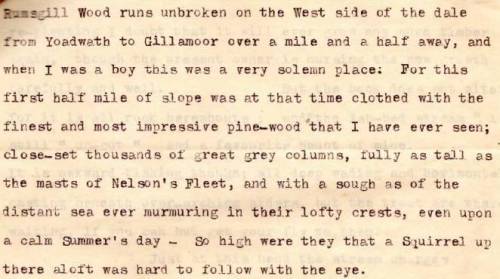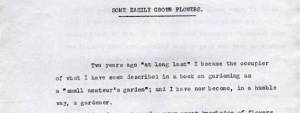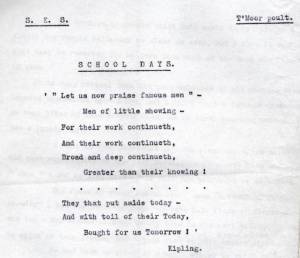
Lendal Bridge – geograph.org.uk – 766795 (Photo credit: Wikipedia)

In and around York (Photo credit: Wikipedia)
In these days people remember “Hawkins. J.” chiefly as a as a severe and stern judge feared by the “professional criminals” who came before him. But he was also a man of great experience of the world, and of very wide and human sympathies. And he had a real gift of quiet humour, though he was rightly careful not to exercise it too freely when upon the Bench.
As some of my readers may know, the bridge over the River Ouse at York called “Lendal Bridge” was an ancient Toll-Bridge, until it was freed from Toll a good many years ago.
It must be quite thirty years since at the “Judges’ Breakfast” at York, and with great enjoyment, Mr Justice Hawkins told this story of his adventure upon Lendal Bridge.
‘You have some strong and very determined men in this City of York, my Lord Mayor,’ said Mr Justice Hawkins with a twinkle in his eye,
‘I came across one last night in my walks abroad who was no great respecter of persons. A stout and hardy rogue, indeed, who in fact held me to ransom, very much in the fashion I fancy that would be the common usage towards strangers in this City some generations ago!
‘Oh yes! He knew who I was! That is to say, I told him; but it did not make much difference that I could see! Nothing serious, my Lord Mayor, nothing serious at all: merely a refreshing instance of a man knowing what he wanted: – and getting it!
‘I came out of the Club alone just after mid-night, and I thought that I would take a stroll before returning to my lodgings. It was a fine moon-light night and not at all cold, the street was deserted and my cigar was just at its best, as I decided to finish smoking it upon the bridge.
‘I crossed to the opposite pavement to have a look at the old Abbey and the Bridge Tower, and then paced slowly along the bridge, glancing from time to time at the moon’s reflection in the River.
‘Your ancient Guildhall has a noble frontage, my Lord Mayor, and when I was near the far end of the bridge, I re-crossed the road-way and returned along the pavement on that side to look at it. The Guildhall, with the old buildings alongside it clustering down to the River, reminds one of a part of Bruges, or of one of the old Cities of the Continent.
‘It was all very quiet and peaceful, and I stood in the middle of the bridge for some moments, enjoying the scene.
‘As I turned to move on I was confronted by a short thick-set man, heavily clothed, and buttoned up to the chin in a stout over-coat. This individual, who seemed to have sprung from no-where, completely barred my passage.
‘He stretched out his open palm and said in a rough hoarse voice:
Ah want a ’awp’n’y.”
‘I was startled by his sudden appearance and did not quite understand his speech, so I said: “What is it that you want?”
A ’awp’n’y” repeated the man decisively.
‘A light dawned on me and I said: “Oh, I see! You are asking me for a halfpenny. Why do you want a halfpenny?”
For bein’ on this ‘ere brig”
replied the man.
‘“I do not quite understand you.” said I “If you are in need of some money and will explain why you stop me in this extraordinary way, I will see what I can do for you. But I do not like my walk being interrupted in this fashion.” His reply:
Ah’s waitin’ fer that ’awp’n’y”
was not what I had expected, and did not make things any clearer.
‘My impression then was that this man was holding me up to ransom in some way for this ridiculous sum, for some mysterious purpose – he obviously did not mean to let me pass without paying it.
‘So I thought I had better tell him who I was. The place was quite deserted at that late hour; and, though roughly respectful in his manner he seemed very determined, and slightly truculent.
‘Drawing myself up, and directing a stern glance upon him, I said: “Sir, do you know who I am?”
Noa,” replied he “an’ it disn’t matter: Ah want a ’awp’n’y.”
‘“Sir,” said I “I am Mr Justice Hawkins, Her Majesty’s Senior Judge of Assize and Goal Delivery in this City of York, and I would have you to understand that in my official capacity in this City, I represent the Queen’s Most Excellent Majesty!”
Vărry likely,” replied the man “but I want that ’awp’n’y.”
‘I suppose that nobody particularly likes being told that it does not matter who he is, so in my most severe judicial voice, I said: “Come, come, Sir! You must tell me exactly why you want a half-penny… then I will decide whether I will, or will not, give it to you – not otherwise.”
Nea-body walks on mā̈ brig wi’out paäying me a ’awp’n’y” replied he.
‘“Your bridge!” exclaimed I scornfully. “Since when has this old and public bridge become your property?”
It’s t’ Toäll-Brig,” said he impatiently. “T’ toäll’s a ’awp’n’y, an’ Ah collects it. You owt tĭ know that!”
‘“Oh! A toll-bridge! How interesting!” said I. Then, as an idea struck me, I continued “Her Majesty’s Justices of Assize represent the Crown and therefore do not pay any tolls. Besides, the toll is surely collected for crossing the bridge, and I have not crossed it.”
‘These seemed to me to be both good sound points, Gentlemen, but this man entirely disregarded them, and merely remarked:
Let’s ha’e less of thy talk! An fork out that ’awp’n’y – Ah’s nŭt gie’n’ ti̔ wait ‘ere all t’neët!”
‘I tried a different tack.
‘“But supposing that I declined to pay, my man?” said I, very severely indeed! “What then?”
Ah sŭd chuck yer ower t’brig” said he.
‘“I’ll take very good care you don’t!” cried I. “What!” I went on “What, Sir!” for the loss of a half-penny toll you would throw me over this bridge! Not knowing or caring even whether I could swim or not?!”
Aye” he replied, “that’s it!”
‘“Why I might drown, Sir!”
Yer vărry likely mŭd,” he agreed, quite composedly. “Unless yer a good swimmer. There’s a lot o’ watter in t’ river ti̔-neët.”
‘“Why! That would be a most gross assault! Nay!! It would be MURDER, Sir!! For which the penalty is Death – by hanging.”
Aye” was the sole reply.
‘“So,” cried I “So, Sir! For the sake of a paltry half-penny you would contemplate, without horror and in cold blood, the heinous crime of murdering one of Her Majesty’s lieges? To say nothing of one of Her Majesty’s Justices of Assize! What, Sir! This is incredible!! Can you possibly be in your right mind?!”
Aye” said he.
‘“For a half-penny, a half-penny! You would…!” (words failed me.)
Aye! Ah wŭd!”
‘I stared at him thoughtfully, in silence.
‘Gentlemen, the discussion of an interesting legal question, begun in proper academic form, seemed now to have descended to a lower plane; and in fact to have reached an impasse.
‘I was not really afraid that my opponent would resort to his threatened forcible argumentum ad hominem: but on the other hand it was not at all clear to me how I was to make good my passage to my lodging without distinctly risking a serious loss of dignity!
‘“Well?” said I, at length.
‘The Toll-keeper glanced up at the moon with a speculative eye. Then, smiling in a peculiarly shrewd “pawky” fashion, he said, quite respectfully:
“Ah sŭd think, Sir, ‘at it ‘ud meb-be be t’leäst bother, efther all, for you ti̔ paäy t’ ’awp’n’y?”
‘And, Gentlemen, I paid!
. . . . . .
‘We parted in friendly fashion and, as I think, with mutual esteem.
‘I especially liked the way in which, in conducting his case, he had entirely disregarded matters totally irrelevant to the issue!’
‘A Sketch in Dialect’
“On Lendal Bridge”
T’moor poult, July 1923
52.059170
1.155450
Read Full Post »


































